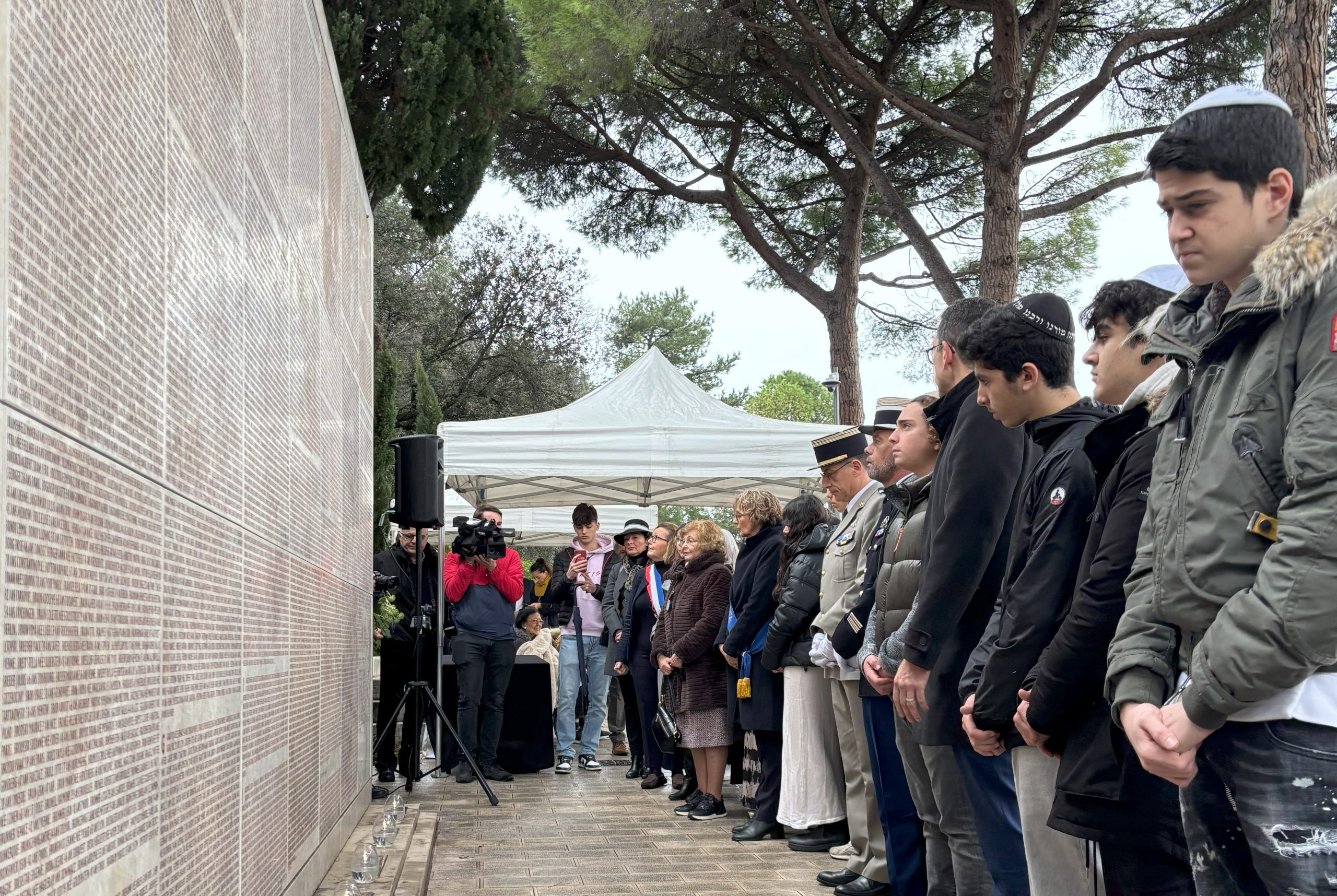This Monday, at the Jewish cemetery in Nice, a commemoration marked the 80th anniversary of the liberation of Auschwitz. A solemn moment where the speakers, young and old, emphasized the importance of passing on the memory of the Holocaust to prevent history from repeating itself.
For Maurice Niddam, president of the Jewish Consistory of Nice, this day is filled with sadness and responsibility. “All these images come back, those of catastrophes and the massive extermination of the Jewish community. The living memory of the witnesses has almost vanished. It is up to us, witnesses of the witnesses, to keep this memory strong.” This duty of memory is expressed in daily prayers, but also in moments like this one, where generations meet to perpetuate history.
This gathering takes on even more importance in a global context marked by conflicts and growing tensions. According to Mr. Niddam, “failing to pass on this memory risks the horrors being repeated.”
The Youth at the Heart of Transmission
Young people were present in large numbers at the ceremony. Mathias, a 15-year-old violinist who performed at the event, shares his role: “It’s an important moment, it allows you to feel useful. I express myself with the violin, but also with my will to transmit this duty of memory. It is very important not to forget.”
For Martine Ouaknine, deputy mayor in charge of Duty of Memory, “the youth suffer from significant gaps in history”. She emphasizes the importance of educating children from an early age. “In primary schools, we have placed plaques in memory of deported children. Their teachers do a remarkable job of preparation.” This type of initiative helps to make a lasting impression and create a direct link between young generations and past tragedies.
Alain Balabanian, representative of CRIF, agrees: “Memory trips, like those to Auschwitz, are essential. History classes must clearly explain what happened. We must also use social media positively to reach young people.”
Figures and Local Initiatives
In Nice, the Jewish community paid a heavy price during World War II. Approximately 2,500 Jews were deported from the Alpes-Maritimes, according to the Holocaust Memorial, many from Nice. Few survived.
To perpetuate memory, initiatives like the “March of the Living” are organized for high school students. These educational trips leave a lasting impression. In addition, there are history classes dedicated to the Holocaust in schools, where Auschwitz texts and stories of resistance fighters are studied.
According to a 2020 study (Ifop), 85% of French people aged 18 to 24 know what Auschwitz represents. An encouraging figure but a reminder that transmission remains a challenge.
A Challenge Against Forgetting
For rabbi and teacher Ilan Drai, education is the pillar of transmission: “one must know the past to move forward and ensure it doesn’t happen again. School plays a central role, with trips to Auschwitz and projects like the March of the Living.”
The speakers also share a vigilance against the rise in anti-Semitism. Mr. Balabanian warns: “there is a very significant increase in anti-Semitic acts in France. Our schools, synagogues, places of worship are under surveillance. We must remain vigilant.”
Commemorations like the one at the Jewish cemetery in Nice are not just tributes. They are bridges between generations, a moment to pass on history to those who will build the future. As Mathias highlights: “Transmitting is also a tradition. It must never extinguish.” With its local initiatives and strong involvement, the city of Nice shows that memory can endure, even 80 years after Auschwitz.


